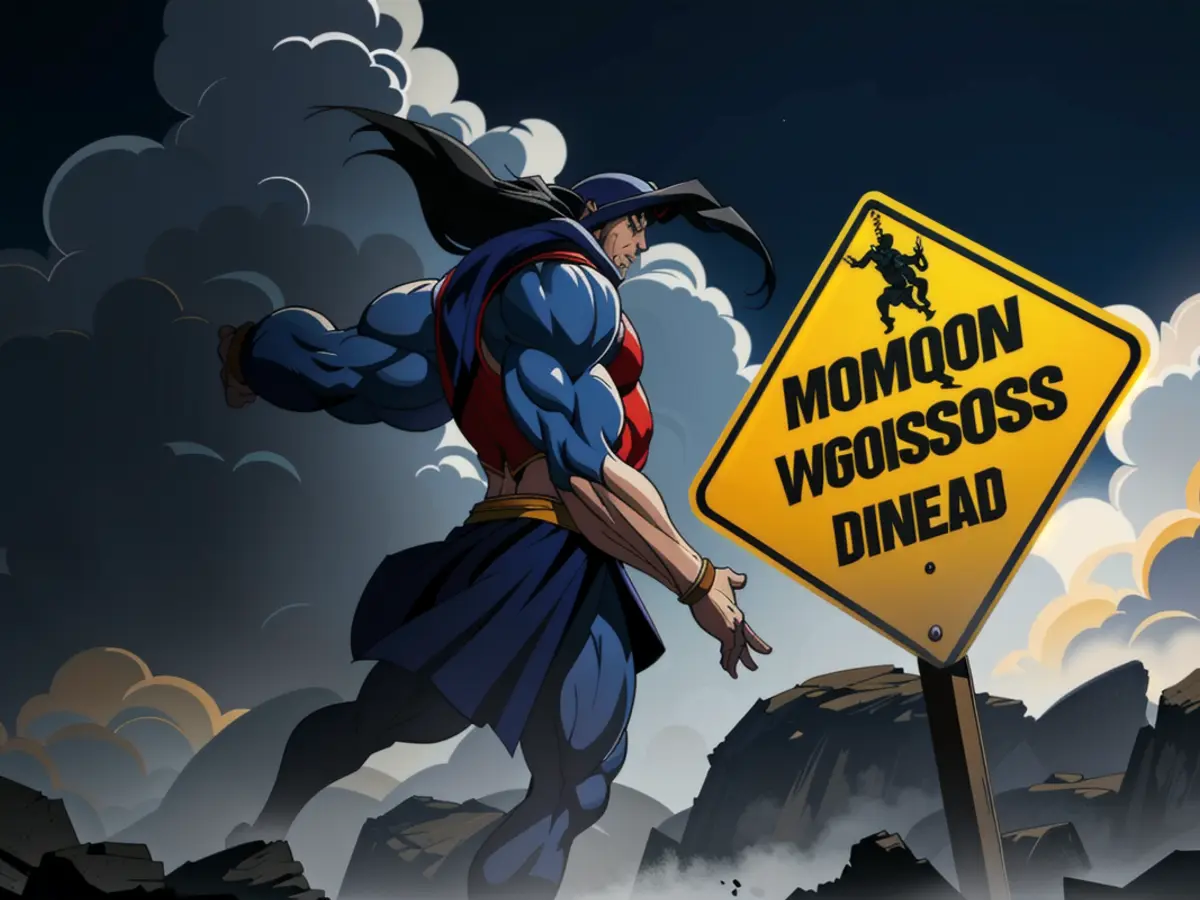The Influence of AI on Music in 2025: Rights Management, Innovation, and Business Viability
The music industry is facing a critical turning point where technology could either elevate its worth or undermine its foundation. The disruptive impact of AI, accompanied by industry resistance, is setting the stage for major changes in the upcoming months. The industry is confronting a technological crisis as AI models become increasingly advanced and political landscapes shift in ways that may either safeguard creators or further weaken their financial well-being. The debate is no longer about whether AI will disrupt the music industry but rather about how much harm it will cause and if we can limit its damage. Here's what's coming and what needs to change.
The Ascent of AI as an Intellectual Property Thief
AI-generated songs, indistinguishable from human compositions, are now being produced by generative AI models. These models are trained on massive, unauthorized datasets harvested from the internet and music platforms. This practice is alleged to infringe on the copyrights of numerous artists, yet responsibility remains obscure. Courts are just beginning to grapple with the ramifications of AI-created works, leaving creators exposed. Existing copyright laws are unable to manage ownership disputes when machines compose music using snippets from countless existing works.
The financial repercussions of this legislative deficiency are significant. Platforms such as Spotify are increasingly incorporating AI-generated music to reduce costs, further minimizing royalty revenues for human artists. Why purchase an expensive catalog when AI can produce something "adequate" free of charge?
The UK is currently spearheading AI copyright reform. Policy makers are weighing the option of granting broad permissions to AI models to scrape creative works without licensing. This proposition has alarmed artist advocacy groups, who fear such policies could establish an unsafe global precedent. If the UK adopts these measures, the EU, US, and other regions may follow, paving the way for unlicensed AI tools to flourish. Artists must act swiftly to pressure legislators for stricter guidelines, like opt-in licensing models that prioritize creative rights over tech industry interests.
By mid-2025, AI companies could operate with near-immunity, churning out music based on unauthorized datasets. The stakes have never been higher for artists to mobilize and influence these policies.
Platforms as Unaware AI Adopters
Platforms like Spotify and YouTube are already adopting AI quietly to populate playlists and recommend music. By 2025, expect AI-generated content to flood these platforms, frequently disguised as human-created. This practice undermines listener trust and undervalues genuine artistry. Streaming platforms could potentially save billions by replacing licensed music with AI-generated alternatives, without disclosing to audiences that the music they’re consuming is entirely synthetic.
Transparency is essential. Platforms must be encouraged to disclose when content is AI-generated. Otherwise, both artists and audiences will unknowingly take part in a system that cannibalizes creativity for profit.
The Emergence of Frontier AI Models
The emergence of frontier AI models, less computationally intensive and requiring smaller datasets, poses an even greater threat. By late 2024, even small startups and individual developers will release AI-music generation tools that rival professional studios. This widespread availability will flood platforms with AI-generated music, further pushing human creators to the sidelines. The saturation of machine-made tracks will make it nearly impossible for independent artists to compete, leading platforms to prioritize machine-made content for cost efficiency, intensifying disparities and diminishing visibility for authentic artists.
AI Agents and the Demise of the Musician
AI-powered agents are poised to become significant figures by 2025. An AI agent is a software-driven system capable of performing complex tasks autonomously, such as composing, producing, and promoting music—but their applications extend beyond the music industry. Some discussions have emerged about major labels exploring AI-generated performers, although large-scale adoption remains uncertain. These AI entities, if developed, would require no royalties, creative freedom, or breaks, potentially creating competition for human artists. This poses an insurmountable challenge for human artists.
Will fans care if their favorite artist is an algorithm? Preliminary evidence suggests that many won't—as long as the music resonates. With advancements in neural AI, machines may soon be able to comprehend and mimic human emotions, recreating them in song with uncanny accuracy. This raises profound questions about authenticity, the unique role of human emotion in art, and whether such emotional imitation will resonate as deeply as genuine human creativity.
What Can Be Done to Protect the Industry?
The music industry has approximately 12 months to take decisive action. Advocacy for global copyright reform is crucial. Artists must push for international agreements requiring explicit consent for AI training datasets and demand transparency for AI-generated works. Licensing agreements should include clear guidelines, like upfront fees for dataset usage, royalties for derivative works, and auditing mechanisms to ensure compliance. Additionally, educating fans about the consequences of uncontrolled AI use in music is essential. Fans must understand how their choices impact the creative economy and the risks of devaluing human artistry. Building alliances among artists, rights organizations, and policymakers will be vital to demand fair treatment and ensure royalties for any AI-generated content derived from their work. This approach not only safeguards artists’ rights but also establishes a enforceable and sustainable framework for AI creators and platforms.
While artists have long embraced technology as part of their creative process, using AI solely for creativity won't prevent platforms from replacing them or AI systems from infringing on their copyrights. The focus must shift to robust licensing frameworks and enforcement mechanisms that protect artistic works from unauthorized use and ensure fair compensation. Additionally, fan education campaigns should emphasize the risks of unchecked AI proliferation in devaluing the creative economy.
The expansion of generative AI is significantly reflected in patent filings. As stated in the WIPO's latest Patent Landscape Report on Gen AI, more than 54,000 inventions related to generative AI were patented between 2014 and 2023, with approximately a quarter of these filed in 2023 itself. Speech and music make up a substantial portion of these patents (13,480 inventions), demonstrating AI's deep integration into the music industry. Tencent takes the lead with over 2,000 patents, followed by firms like Baidu, IBM, and Microsoft. China holds a significant share with 38,000 inventions, while the US comes second with roughly 6,000.
The worldwide race to control AI technology is gaining momentum, and government policies will shape this ecosystem. A potential new Trump administration could usher in deregulation across tech sectors, reducing copyright protections and favoring innovation over creator rights. This could empower US companies to adopt aggressive AI deployment strategies, potentially influencing global norms. If not checked, this deregulation may exacerbate artists' marginalization further and intensify the challenges posed by AI-generated music content. The demand for more stringent licensing and transparency in AI training procedures is more pressing than ever.
This surge in intellectual property filings demonstrates AI's rapid growth, particularly in the video and music sectors. As generative AI disrupts these industries, the stakes for creators have never been higher.
A Call to Action
Time is running out. The next 12 months may decide whether the music industry flourishes or crumbles under AI's impact.
Best-Case Scenario: Governments regulate AI training datasets and platforms adopt ethical practices, allowing human creativity to coexist with AI tools. Artists utilize AI to boost—not replace—their voices.
Worst-Case Scenario: Deregulation and a tech-centric landscape emerge, where AI controls streaming, leaving most artists with neither income nor recognition. Authenticity becomes a luxury, only accessible to a select few. Without intervention, 2025 might signify the demise of independent artistry. AI-generated content floods the market, rendering most artists incapable of competing for either visibility or income. Creators, fans, and policymakers must unite to establish a sustainable, ethical future where technology augments creativity instead of eliminating it. The fight for music's soul has commenced, and it's a battle we cannot afford to surrender.
- The music industry is currently debating whether to grant broad permissions to AI models to scrape creative works without licensing, a proposition that has alarmed artist advocacy groups.
- Platforms such as Spotify are increasingly incorporating AI-generated music to reduce costs, further minimizing royalty revenues for human artists.
- If the UK adopts this policy, the EU, US, and other regions may follow, paving the way for unlicensed AI tools to flourish in the music industry.
- The WIPO's latest Patent Landscape Report on Gen AI revealed that more than 54,000 inventions related to generative AI were patented between 2014 and 2023, with approximately a quarter of these filed in 2023 itself.
- A potential new Trump administration could usher in deregulation across tech sectors, reducing copyright protections and favoring innovation over creator rights, which could exacerbate artists' marginalization further and intensify the challenges posed by AI-generated music content.








